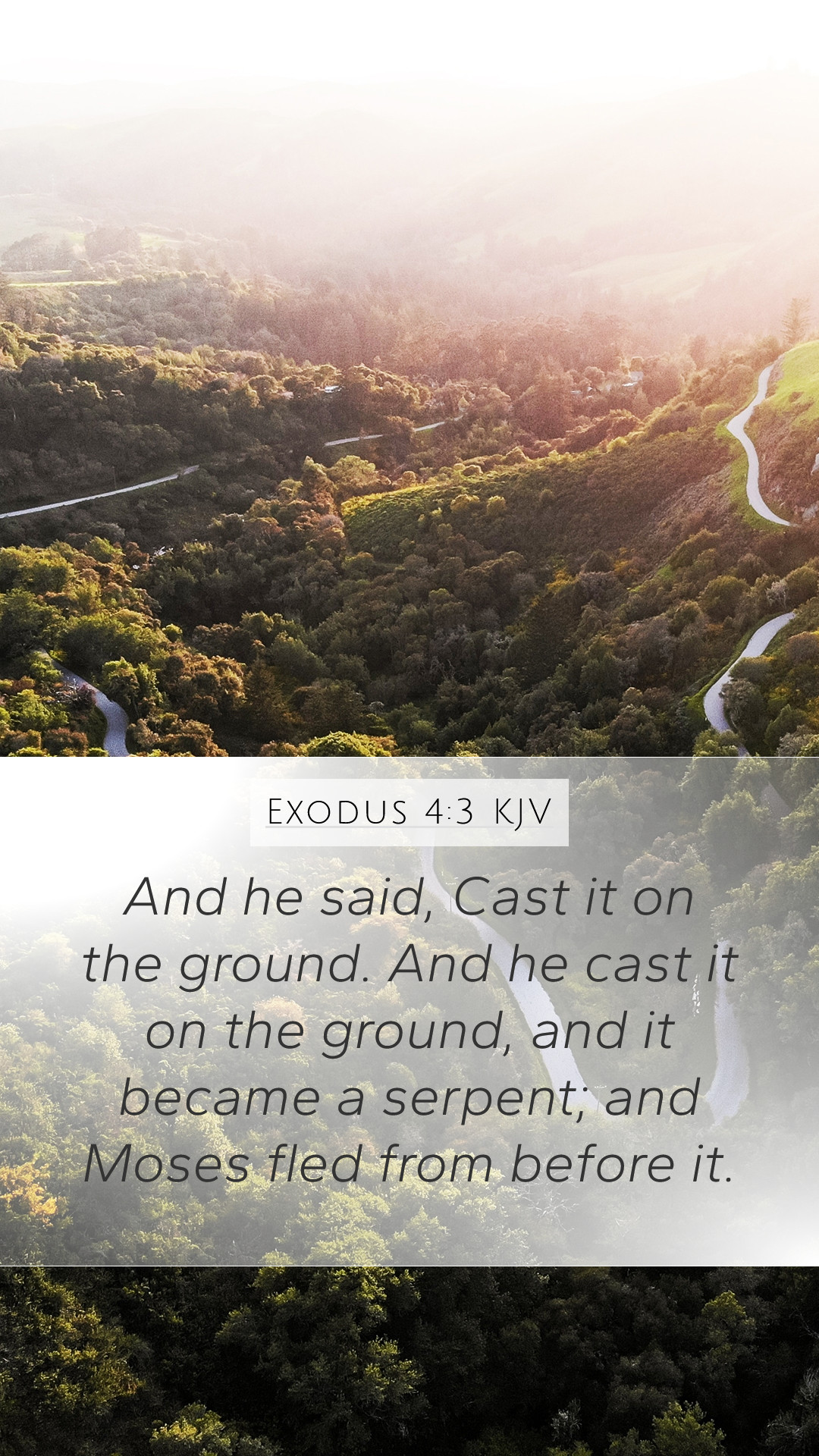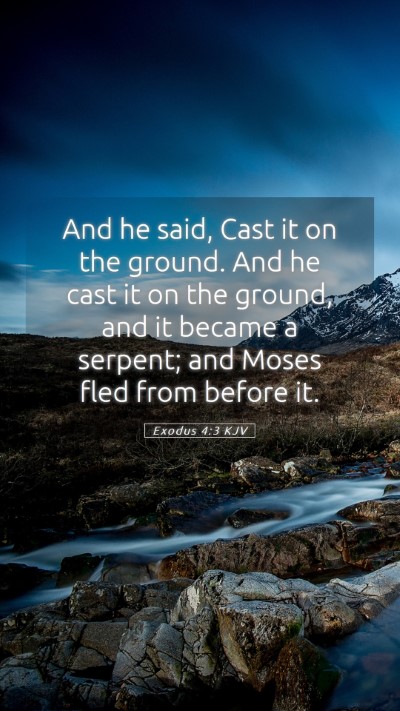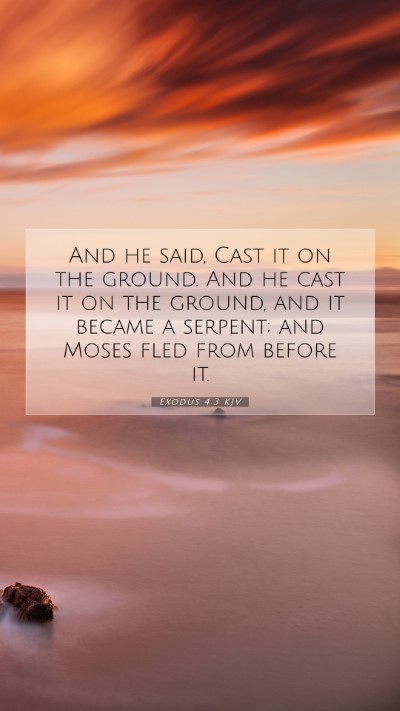Bible Verse Commentary: Exodus 4:3
Verse Context: Exodus 4:3 states, "And he said, Cast it on the ground. And he cast it on the ground, and it became a serpent; and Moses fled from it." This verse occurs during a crucial moment when God is instructing Moses on how to fulfill his mission of leading the Israelites out of Egypt.
Overview of Exodus 4:3
In this verse, God commands Moses to throw his rod to the ground, transforming it into a serpent. This miraculous event serves as a demonstration of God's power and Moses' fear as he witnesses this transformative miracle. The action of throwing the rod represents Moses' submission to God's authority and the beginning of his prophetic mission.
Commentary Summary
The interpretations of Exodus 4:3 from various public domain commentaries yield a wealth of understanding:
- Matthew Henry's Commentary: Henry emphasizes that the rod signifies Moses' calling and God’s support. Casting it down illustrates a significant act of faith and retreat from his perceived limitations. The transformation signifies God's ability to wield creation for His purposes, highlighting the power of obedience.
- Albert Barnes' Notes: Barnes notes that the act of Moses throwing down the rod was essential to reassure Moses that God would equip him for his task. The serpent symbolizes danger and opposition, suggesting that success in ministry often involves confronting fears and challenges.
- Adam Clarke's Commentary: Clarke notes the cultural relevance of serpents in Egypt, indicating that they were associated with authority and power. The transformation from rod to serpent displays the supremacy of God over the Egyptian gods, thereby establishing God's authority in Egypt and equipping Moses spiritually for his task.
Meaning and Application
The message contained in Exodus 4:3 resonates deeply with the struggle of faith and obedience. Below are several insights from the commentaries that help in understanding this significant Bible verse:
- Faith in Action: The necessity of casting down the rod reflects a theme of relinquishing control to God. It illustrates the idea that true faith often requires us to step out of our comfort zones.
- Divine Transformation: The conversion of the rod into a serpent serves as a metaphor for the miraculous change God can bring about in the lives of individuals willing to follow His command.
- Facing Fears: Moses' immediate reaction to flee from the serpent demonstrates the natural human inclination to shy away from fearsome challenges. God’s call, however, often leads us to confront these fears.
Cross References
Exodus 4:3 is related to several other scripture passages:
- Exodus 7:10-12: God instructs Moses and Aaron to cast down their rods before Pharaoh, demonstrating God's power through further signs.
- Matthew 10:16: Jesus refers to His followers as "sheep in the midst of wolves," indicating that they will face dangerous environments akin to the serpent Moses faced.
- 2 Timothy 1:7: This verse reminds believers that God gives us a spirit of power, love, and self-control, enabling us to confront and overcome fears like Moses did.
Conclusion
Exodus 4:3 encapsulates a pivotal moment of divine instruction, invoking themes of faith, submission, and transformation. The commentaries provide rich insights into the layered meanings and applications of this verse, encouraging believers to understand its implications in their own spiritual journeys. In exploring Bible verse meanings, interpretations, and applications, this verse serves as a profound reminder of God's might in the ordinary and extraordinary moments of life.
Further Study Resources
For those seeking deeper insights into the Bible and Exodus 4:3, various Bible study tools and resources can enhance understanding:
- Bible Study Guides: Offer structured approaches to exploring scripture themes.
- Online Bible Study Courses: Provide comprehensive learning experiences, often featuring expert teachers.
- Biblical Exegesis Resources: Help to analyze scripture with a focus on original languages and historical context.


